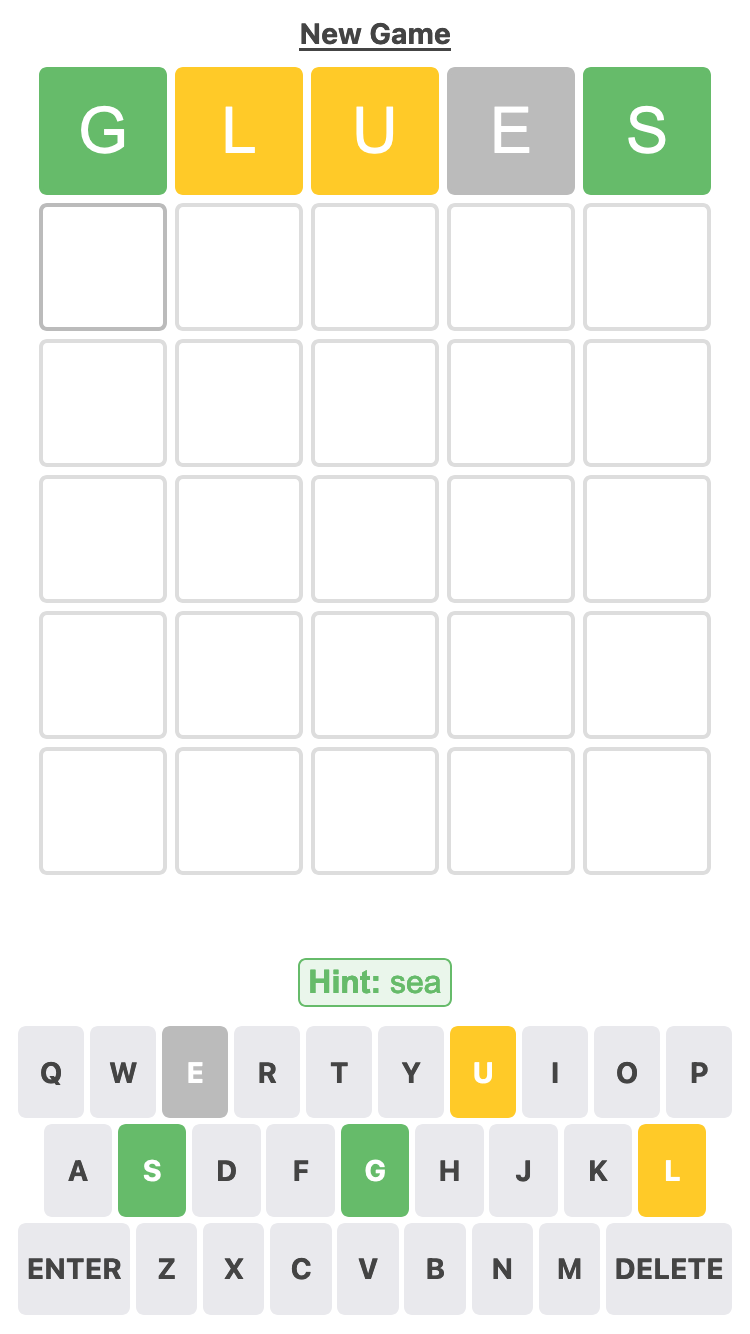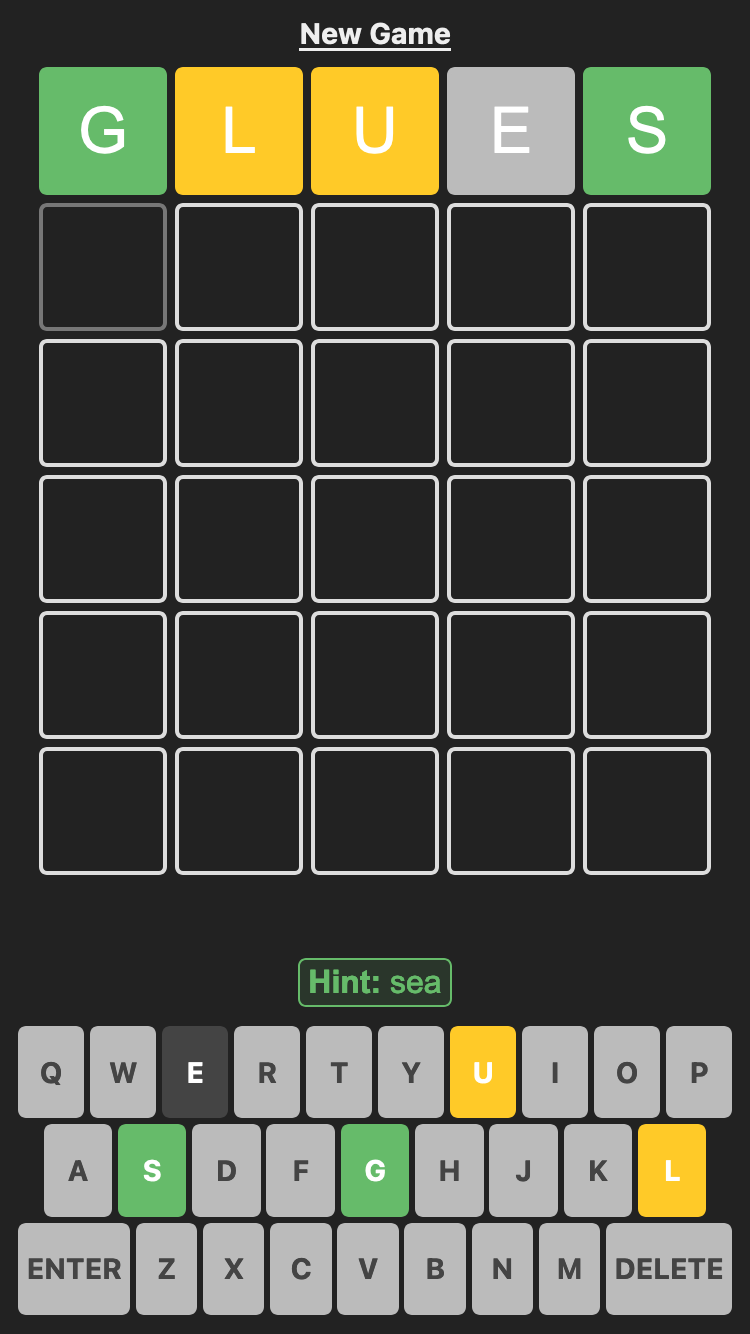A create-your-own Wordle clone. Enter a word, generate a game link, and send it to your friends.
| Game Creation | Light | Dark |
|---|---|---|
 |
 |
 |
Simply click or tap "Copy results" from the post-game dialog to copy game results to your clipboard. Delete a few rows of emojis to impress your peers!
Game ID: 42
2/6
🟩🟨🟨🟨⬜
🟩🟩🟩🟩🟩
Game progress is saved every time you submit a guess. Refresh the page without losing your work, and worry not about accidentally replaying games you've already completed.
Note: Progress is saved by game ID and word. For example, any history relating to gameId=42, word=BEACH will be treated separately from gameId=43, word=BEACH.
Are you making a puzzle with a challenging word? Optionally provide a hint with the puzzles you create. Any links contained in the hint will be detected and made clickable.
Fivel automatically matches your operating system's light or dark theme. Bask in the sun, or hide in your cave; either way your eyes are safe.
Please report any problems on GitHub. For you nerd types, feel free to follow the instructions below and open a pull request.
Install NodeJS, clone this repository, and run npm install in the root directory.
This project uses several NPM scripts to manage various build tasks:
build: Compiles this project and outputs the result to thedocsdirectory. GitHub Pages will host the code stored in thisdocsdirectory.check: Provides diagnostics checks for unused CSS, accessibility hints, and JavaScript/TypeScript errors.dev: Starts a local development server, compiles the project, and watches for changes to source files. Open browser tabs will be automatically refreshed when changes are made to source files.preview: Starts a local server that hosts the code stored in thedocsdirectory.test: Runs unit tests.
Why global.d.ts instead of compilerOptions.types inside tsconfig.json?
Setting compilerOptions.types shuts out all other types not explicitly listed in the configuration. Using triple-slash references keeps the default TypeScript setting of accepting type information from the entire workspace, while also adding svelte and vite/client type information.
Why enable allowJs in the TS template?
While allowJs: false would indeed prevent the use of .js files in the project, it does not prevent the use of JavaScript syntax in .svelte files. In addition, it would force checkJs: false, bringing the worst of both worlds: not being able to guarantee the entire codebase is TypeScript, and also having worse typechecking for the existing JavaScript. In addition, there are valid use cases in which a mixed codebase may be relevant.
Why is HMR not preserving my local component state?
HMR state preservation comes with a number of gotchas! It has been disabled by default in both svelte-hmr and @sveltejs/vite-plugin-svelte due to its often surprising behavior. You can read the details here.
If you have state that's important to retain within a component, consider creating an external store which would not be replaced by HMR.
// store.ts
// An extremely simple external store
import { writable } from "svelte/store"
export default writable(0)